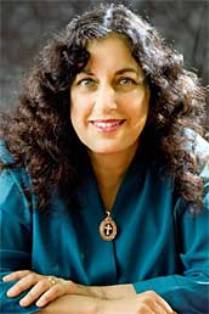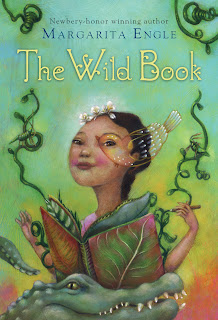Creativity Salon: an Interview with Margarita Engle
I’ve had the pleasure of visiting with Margarita Engle, reading her books and savoring the Colorín Colorado interview below. I strongly recommend that you watch the interview for many reasons including to hear Margarita’s eloquent response to why she writes in free verse.
Margarita, welcome to this Bookjoy Creativity Salon.
 |
| Photo by Marshall W. Johnson |
Hello, my name is Margarita Engle, and I write young adult novels in free verse, primarily about Cuban history. Although I was born in Los Angeles, my mother is from Cuba. When I was a child, we spent summers on the island, and I developed the deep attachment that inspires my writing.
1. You’ve said you were a book worm as a child and connected that to then becoming a writer. Many readers, though they may love reading, do not become writers. How/why, then, do you think your writing life began?
ME: I loved The Black Stallion, and Island of the Blue Dolphins. Both were books about children stranded on islands, trying to survive. Looking back, I think I must have related to those stories because of the Missile Crisis, travel restrictions, and my own sense of isolation from Cuba. Growing up in the hectic city of Los Angeles, I craved the peace of nature. Writing was an exploration, and an escape. I started writing lyrical nature poems when I was very young. The only one I vaguely remember was about dry hills that looked like brown lizards. I do remember that writing felt comforting, and it still does.
2. Your books have appropriately received many awards. You are the first Latina (o) to receive a Newbery Honor Award, yes? What is your reaction to that fact?
ME: I walked through the Newbery ceremony in a daze. To this day, I still suspect that I might have been dreaming. I didn’t realize how much it meant to the Latino community, until I was included in articles and books about women who changed America. It’s humbling too, because all I did was daydream on paper. I feel like I’m standing on the shoulders of Latino earlier Latino authors who were not honored.
3. What is your personal writing challenge?
ME: There are so many tempting stories, and so many fascinating subplots. It’s easy to get sidetracked. Each time I start a book, I have to write a note to myself about the theme. Later, when I feel confused, I can read the note and remember what I’m really trying to say. When I finish the book, the note becomes my “Author’s Note.”
4. Have you always thought of yourself as creative? How do you nurture your creative life?
ME: I have always been a daydreamer. My mother must have mistaken my daydreams for philosophy, because when I gazed into space, she would tell people not to bother me while I was thinking! She understood the key to creativity: quiet time. In the modern world, that means turning off noisy gadgets and electronic interruptions. I need time alone in a hammock, or out in the woods, walking… Many great poets (Antonio Machado!) have been avid walkers. The rhythm of footsteps turns into the music of verse.
5. Would you like to tell us about the projects you’re working on or topics that intrigue you, those, to use your words, that now “haunt” you?
ME: My next novel in verse is The Wild Book, scheduled by Harcourt for March, 2012. Unlike my historical books, this one is completely personal. It was inspired by stories my grandmother told me about her childhood. She grew up on a farm during the chaos following the U.S. occupation of Cuba after the “Spanish-American” War. She also had dyslexia, so the book is dedicated to reluctant readers. Exploring my grandmother’s childhood, and taking on her voice, was an emotional experience!
My next picture book is about search and rescue dogs, it’s scheduled by Holt/Macmillan for 2013. This topic comes from my husband’s volunteer work, training our two dogs in the Sierra Nevada Mountains. I am a volunteer “victim.” I hide in the forest, so the dogs can practice finding a lost hiker.
6. You’ve talked about writing about people who made “hopeful choices.” In what ways is writing a “hopeful” choice for you?
ME: I won’t write a story for young people unless it has a hopeful ending, so every time I start exploring some complex historical situation, I’m forced to choose the optimistic aspects. I can only go ahead with the project if I discover that there were people who were kind while surrounded by cruelty, or fair while surrounded by injustice. If I don’t find documented examples of admirable qualities, I drop that project, and move on to something else.
7. To end on a lighter note, what makes Margarita really laugh?
ME: Animals and folklore! In my daily life, our dogs make me laugh. They help me remember how to be silly. In my literary life, the exaggeration found in Cuban folktales is hilarious. I am trying to include some of that folklore in my writing.
Visit Margarita Engle’s website.


Comments
Creativity Salon: an Interview with Margarita Engle — No Comments
HTML tags allowed in your comment: <a href="" title=""> <abbr title=""> <acronym title=""> <b> <blockquote cite=""> <cite> <code> <del datetime=""> <em> <i> <q cite=""> <s> <strike> <strong>